Mrs. Cupchick: It’s nice you young girls have your careers, but when you come home to an empty apartment, what do you really have?
Laurel: Independence.
Mrs. Cupchick: It's overrated.
[from The Associate (1996)]
Real estate woes — whether you’re buying or renting, but mostly renting — have downplayed the importance of making a space your own. It’s impossible to call somewhere home when it’s considered someone else’s investment: subjecting a property to market forces has stripped a person’s right to shelter. Around the time I had encountered Danita Steinberg’s Instagram account, @womenlivingalone, I was being evicted from an apartment I called home for 9 years. It was the first place that I lived in completely alone. It was rent-controlled. Despite everything else going on in the world, my landlord’s son needed an extra floor urgently, and so I had to leave.
On my last apartment hunt in 2012, the process felt like a job search: People lined up outside an hour before with reference letters, financing, etc. to prove they were worthy candidates for housing. Nine years later, it was like buying a house: candidates offered down payments (in the form of a year’s worth of rent in advance) or started bidding wars over rentals. Housing was increasingly framed in market terms: how it was valued, getting out of hand, how the bubble could burst, how rents were going to get even worse. My algorithm started pointing me to real estate agents on TikTok, who were boasting about Airbnb and rental properties — the ideal form of passive income. Real estate, they assured their followers, was a sound investment. If it weren’t for landlords, another chimed, then no one would have a place to live.
By the time I found a new place, the neighbourhood was already eyed by investors and developers. Soon after I unpacked, a nearby boarding house was shut down so that it could be transformed into a 13-storey eyesore. Before, it stood as a three-storey castle on a sunny side street that sheltered people on the brink of disaster. It was reliable. It provided a sense of stability and routine. The people who lived there knew each other, and spared cigarettes or lighters outside to newcomers. When it was officially shut down, many of its residents could be heard wailing in the streets at night, frustrated and calling out the names (I assume) of people they knew and couldn’t locate. In Toronto, like everywhere, a building with paying residents isn’t considered profitable anymore — now it’s just the land and sky above that sparks dollar signs. Shelter is no longer a right but an investment opportunity. And at this point, while we’re on the subject, it’s pretty much impossible to live alone.
A home isn’t just shelter from the elements, but from the outside world. It’s a space where, if you’re lucky, you can be at ease with yourself. Danita Steinberg’s @womenlivingalone shows women who are decorating, living, and carving out a life, all on their own terms. A writer living in Toronto, she co-runs We Really Like Her! at the Revue, a screening series focusing on women in front of and behind the camera. She talked to me about the many portrayals of women in film, on not compromising, and how solitude can be instructive.
What prompted you to start @womenlivingalone?
I started this about two years ago. Right before the pandemic started — about a month before — I moved out for the first time. I lived with my dad up until then. I got my own place, so it was my first experience of living alone. And then the pandemic happened, and I spent all of that time literally by myself in my apartment. I was watching Rhoda, which for people who don’t know, was a Mary Tyler Moore spin-off. It starred Valerie Harper as Rhoda Morgenstern, who’s a single lady. Interestingly, in the first season, she is married, but then gets a divorce and lives by herself. I’ve always loved that show. I've always loved Valerie Harper and Rhoda. And I've always loved her apartment: it's so girly and feminine. It’s pink, and there’s an orange shag rug and it's so colourful, fun, and bohemian.
I’m also a writer, so in my mind, when I was watching it, I was actually thinking it might be a column called “Women Living Alone.” I was telling my friend this, and she was like, “That kind of sounds like an Instagram account.” There are all these film Instagram accounts that are very niche — like telephones in movies or sighs in movies — that are very visual. It was a really great idea and way less lift than a whole column. Rhoda was my first post.
It’s really interesting. I’ve gotten really beautiful messages from women saying how affirming the account is, or that they went through a bad breakup and now they're living alone and they look to the account to feel better. I didn’t think much of it when I started it, but it’s become a really cathartic project for me. It’s this little community of other women who live alone.
I wanted to touch on that visual aspect to Instagram — the visuals of a woman living alone and what that looks like. I think about Michelle Pfeiffer in Batman coming home and being like, Honey, I'm home. For women, a house was, at one point, their domain. But then there’s that double standard about a single woman having her own space, on her own terms. So what was so cathartic for you?
I’m in my early 30s, so a lot of my friends are coupling up, getting married, having kids, and sharing homes with their family. That's been really challenging for me as someone who's single, as someone who's not really looking to go the conventional heteronormative route. So, it was even cathartic in that way, where I was working to normalize my lived experience and saying to the world this is a totally fine way to live, and it's actually liberating and it's counterculture and subversive. It's all these things.
It evolved because when I started developing this little community, I also wanted to be more open about the challenges of living alone. All of the responsibility is on you to do the chores, to take care of the pets, to do groceries, to pay the bills. It’s never-ending, and I don't think that people who live with someone else really understand the weight of that. I started opening more about that. The posts that I’ve made about that stuff do get a lot of responses from people being grateful to see their experience mirrored, and able to commiserate a little bit.
Do you get responses from people in partnerships who crave that alone time?
I don’t think that it’s resonating with women who are living with someone. Maybe there are women who are following me who are partnered. I’m sure there are, but they haven’t messaged me.
In what ways are a lot of these women not only fighting the expectations of settling down and having kids, but also redefining their own ways of living? Is that what you’re looking for when you’re selecting who you feature on the account?
I’m not that choosy with who I feature because there aren’t that many. There really aren’t that many women living alone in the media, which is part of the point: we need more of this representation. Interestingly, Whoopi Goldberg is someone who’s lived alone and is single in a lot of her films, like Jumpin’ Jack Flash! and The Associate, and there are race dynamics that definitely play into how she is or isn’t sexualized, but she also famously said “I don’t want somebody in my house.” On the flipside of if, you have someone like Jane Fonda, she lives alone in quite a lot of her films — Klute, The China Syndrome, and The Morning After — and she’s someone who throughout her life, she’s been sexualized and she’s talked about how much she needed a partner or approval from men. Now, she’s very much the opposite, where she’s come around to her independence.
Is this how you’ve always watched films? Or sought out particular films?
I’ve always sought out films that center women, so it’s what I watch naturally. But adding to the feed on Instagram has become a motivator for me to watch movies that I haven’t seen. A lot of movies that have women living alone are often written and directed by women, so it’s a way for me to explore movies that I wouldn’t normally watch. It informs my viewing.
What about the divorcée or the single woman who’s actively dating, like Carrie Bradshaw, or the woman who’s just not dating at all? Usually when we see women living alone, they’re no longer in a partnership, or they’re actively seeking one. We rarely have a woman who’s just happy on her own.
A lot of the women I do feature are actually side characters, and you don’t totally get their story. They’re throwaway characters.
They’re also offbeat. Or spinsters.
One of the more interesting depictions of a woman living alone is Julia Roberts in Sleeping with the Enemy. She escapes an abusive marriage and then goes into hiding. She gets a cute little house and there’s such a powerful montage of her going around and making her house how she wants it. She’s painting and she’s putting flowers on the windowsill. The home that she had with her husband was very sterile, very modern.
A trope that I love that’s in Frances Ha, Double Happiness, The Worst Person in the World, and a few other ones, but the movie ends with a woman moving out on her own and making the space her own. And that’s how it ends.
What’s significant with Sleeping with the Enemy, is when her husband goes through her house when she’s not there. And I remember him observing the details of her new life and scrutinizing her personal touches. He even attacks her in her new home.
These homes are for safe spaces from dangerous men. That’s a thread through a lot of these movies where women live alone. Home is their safe haven — a safe space from the dangers of the outside world, which there are so many when you’re a woman.
Another thing is that often the women are queer-coded. I’m thinking of Annie Hayworth, played by Suzanne Pleshette, in The Birds, and she is so obviously a lesbian and she lives alone. She’s sort of the town tramp? It goes back to what you were saying about these women being outsiders.
The other thing that’s funny is that I’m not a rom-com person generally, but there are so many women who live alone in rom-coms! Most of them do until they find their partner, which I hesitate to include these women sometimes because they’re endgame is to move in with someone.
I wanted to ask about the details that make a house a home in a film — those authentic giveaways. For instance, a lot of rom-coms focus on the single woman’s closet. What do those details signal to you?
It is a very rom-com thing to have them going through the closet and throwing clothes around! If it’s a woman who’s been put out to pasture or is the town freak: Usually, her space is very eclectic, and in these films, and tv shows, I think these spaces match the tone of the movie and they also match the character.
We have different situations where we have a woman living alone who is a more benign character, a very positive character, and then the women who are not. I'm thinking of Matilda, with the teacher and the school principal. Their living environments are very different. What about the evil woman living alone?
Even going back to Kathy Bates in Misery, she is someone who is the opposite of sexualized, she’s always in denim overall dresses, turtlenecks, and stuff like that. Miss Trunchbull in Matilda is very desexualized. Essentially, if you're a woman living alone in anything other than a rom-com, you often are quite desexualized. That comes down to them being outsiders.
The resonant images and references tend to be in older films or television shows. It feels like we have fewer examples of women living alone these days, and primarily, it’s a lot more expensive and unattainable to do so in this economy. But we are, to an extent, expected to suspend disbelief for many other things in film and television, so is there something else going on?
A lot of them are definitely older references. There’s not a lot currently. I’ve seen a woman living alone in Harlem. The only other example I can think of is Princess Carolyn in Bojack Horseman?
I’m also curious about the woman living alone and her daily routine. Recently, with social media and even girlbosses, we’ve had this more extreme routine of “getting ready with me”.
The “5 to 9” before your “9 to 5” [laughs].
So much of that! But the women you’re referencing in film and television are usually doing very unglamorous, unkempt things. As opposed to what we’re seeing on social media which is very clean, curated, and framed.
Immediately I think of Elaine from Seinfeld. I have this picture of her in my feed. She’s on the couch in her pajamas with tons of snacks around her and I just love that whole vibe. In movies and tv, routine is boring, so you don’t always show it, but there’s Jane Fonda in Klute, she has a cat and I will say that a lot of these women have cats, which is so funny. They’re being set up to be crazy cat ladies. But there’s this moment in Klute where she’s getting ready in the morning to leave, and before she leaves, she feeds her cat. I assume it’s tuna, because what happens is she takes the can, dishes out the food with a fork, and then before she puts the fork in the sink, she licks it, which is gross. It’s repulsive, but it speaks to those private, routine moments.
For your 100th post, you asked your followers their favourite thing about living alone. What were the responses like? Or the DMs?
A lot of women said: not compromising. Not on temperature. Not on décor. Not on what they watch on tv. There were all these things.
There are more couples talking publicly about living apart in different ways. Each person has their own space, even their own bed. What do you think of that?
Especially in a bigger city with such small apartments and spaces! As lonely as I was in the pandemic — I would go months without seeing anyone — and as hard as that was, the alternative seems so much worse to me. I think of friends with their partner in 650 sq. ft. on top of each other. There’s no way that I would have survived. No space to spread out or be apart? If we could just — and so much of this comes down to heteronormativity — embrace different living situations, we would all be so much happier. There is this narrative that if you live in separate apartments, you’re not happy. Your relationship is in trouble. You should want to spend every waking minute with each other. Or even if you sleep in different bedrooms, then the couple is on the rocks. I think it’s time to even start talking about those friend communes, where your friends are your platonic partners. And you can still have a sexual partner, but they’re not your main priority. So there are all these reconfigurations of relationships that I think society would benefit so greatly from if they were normalized.
A lot of people fear being alone, like it’s the worst thing you can be. But it’s so funny to me because you can see it with friends or on the internet, people being like “My dream is to live the Golden Girls when I’m older.” And it’s like babe, you can do it now. You don’t have to go through marriage and kids and then when your husband dies and your kids are gone, that’s when you get to live with your friends. You can do that now. You don’t have to do the other stuff if you don’t want to. Loneliness teaches you a lot. It’s painful, but it teaches you a lot about yourself, like, how resilient and strong you are. It’s a slippery slope into “I don’t need anyone ever!” [laughs] And that’s not true! But there’s something to be said about really enjoying your own company and learning to enjoy your solitude.
Additional Links
*You can read more of Danita’s writing here and here.
*Upcoming We Really Like Her! screenings: Mamma Mia! and Party Girl.




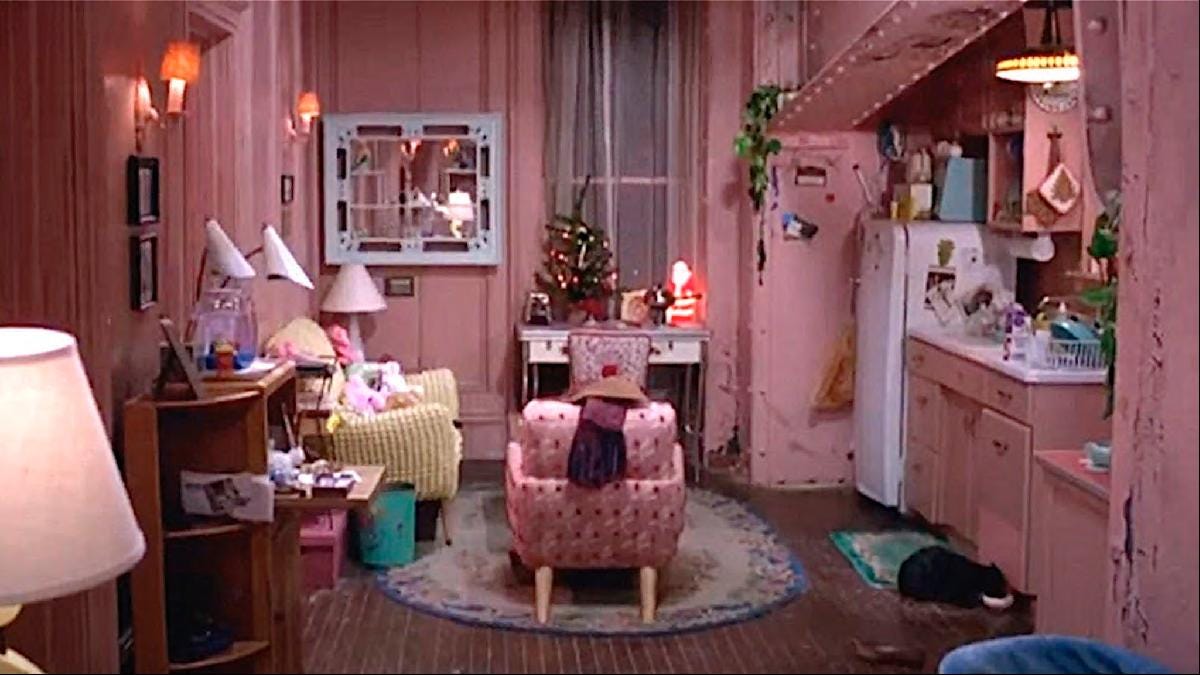
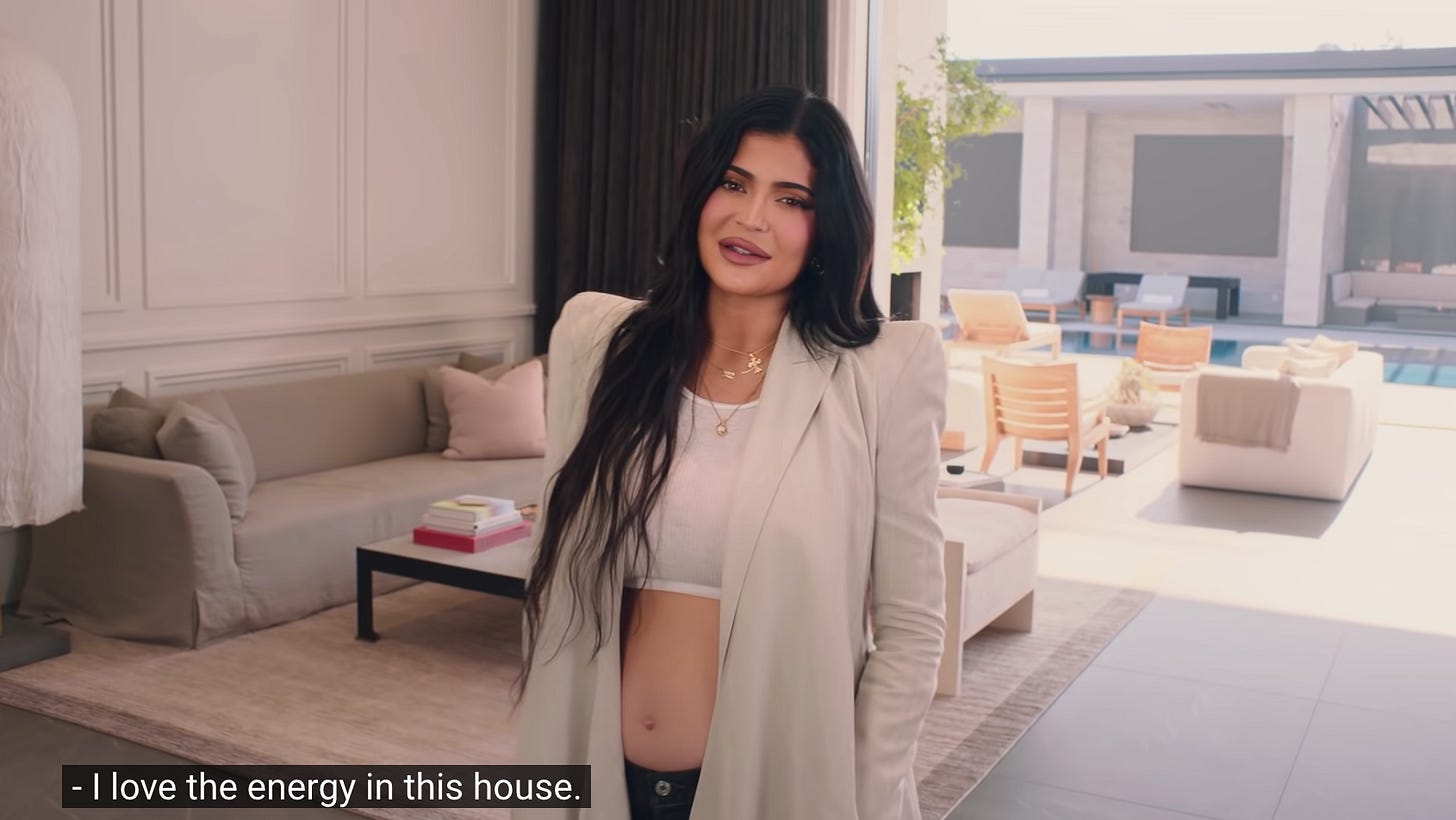
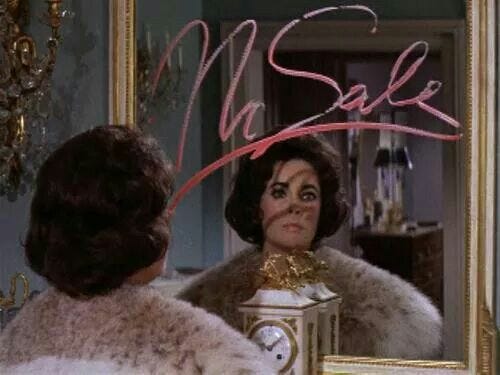
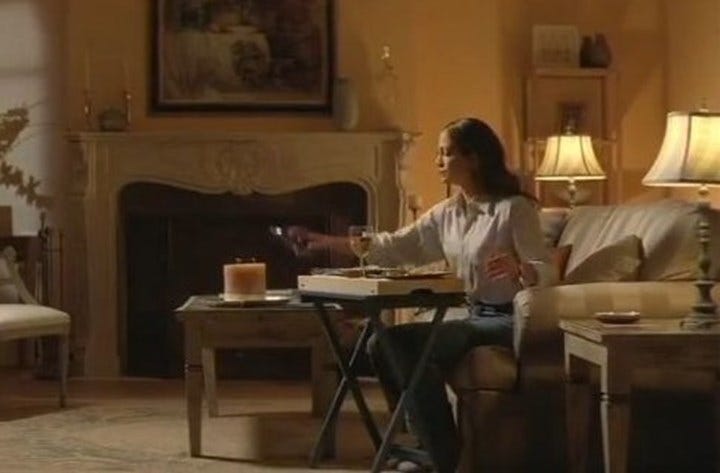



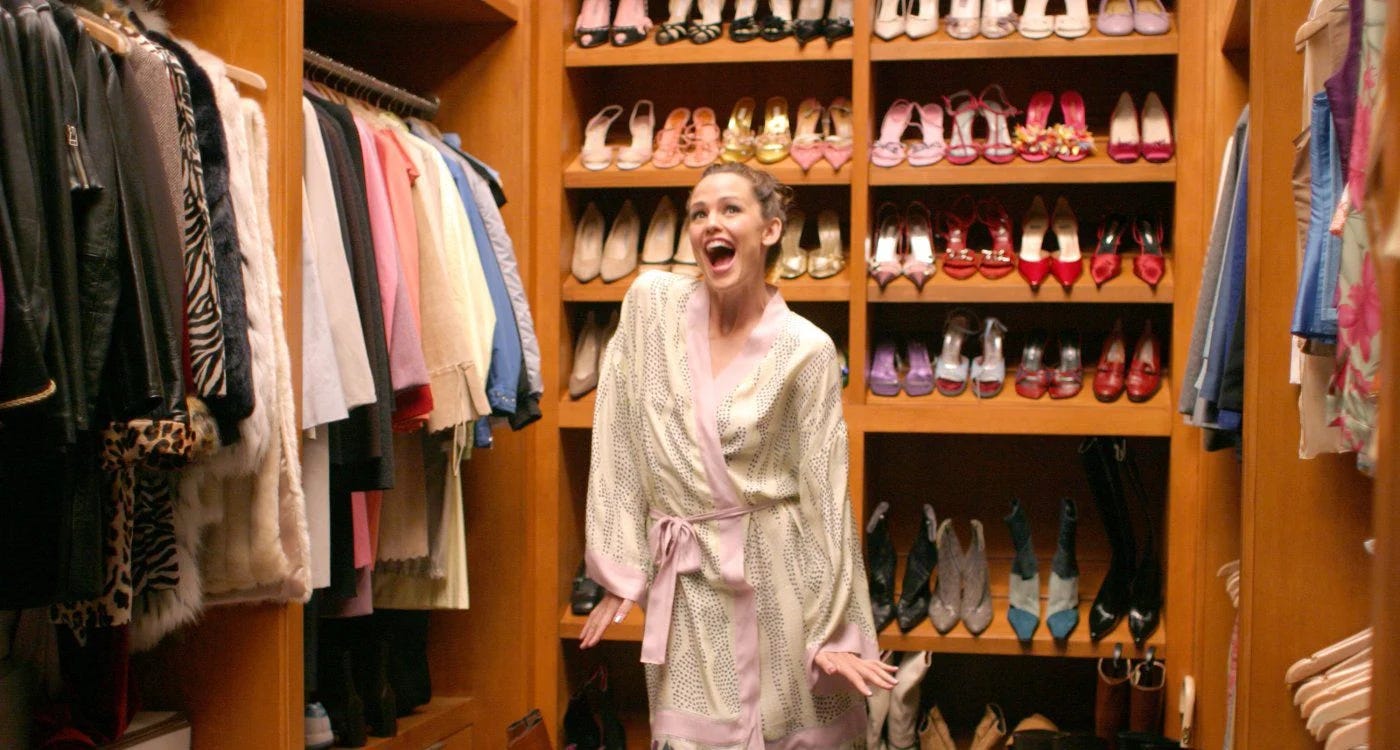

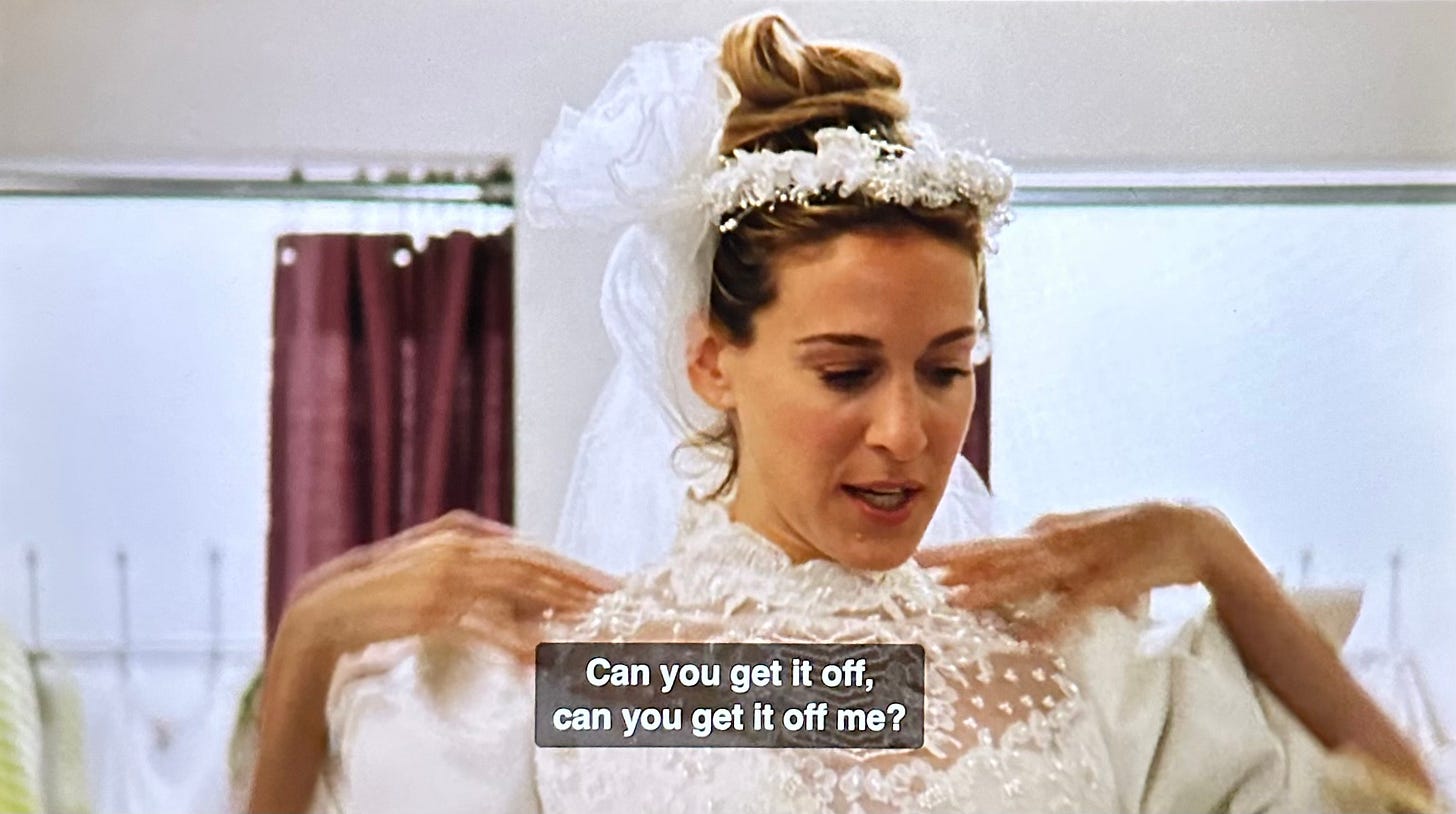
ah! this is so, so good!!